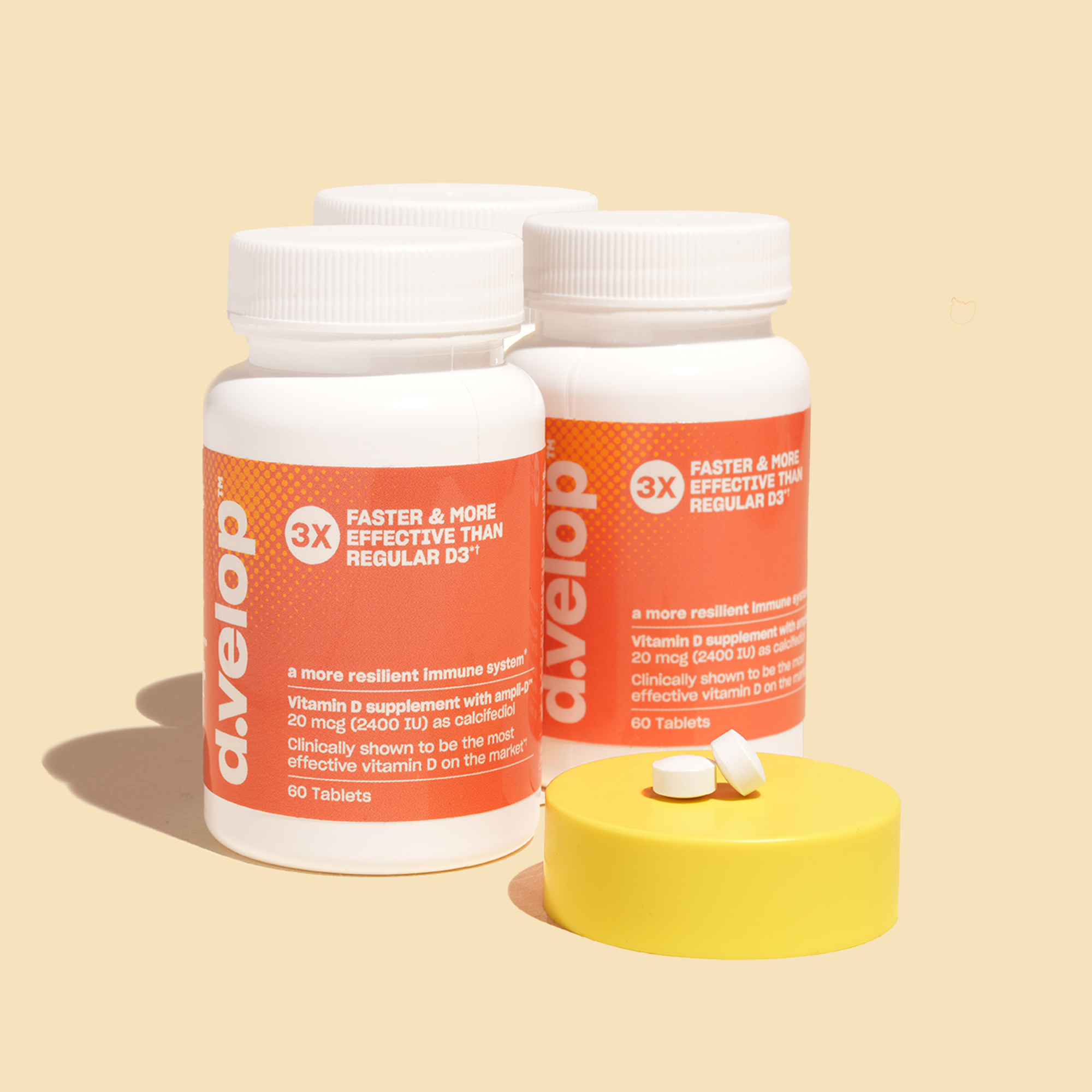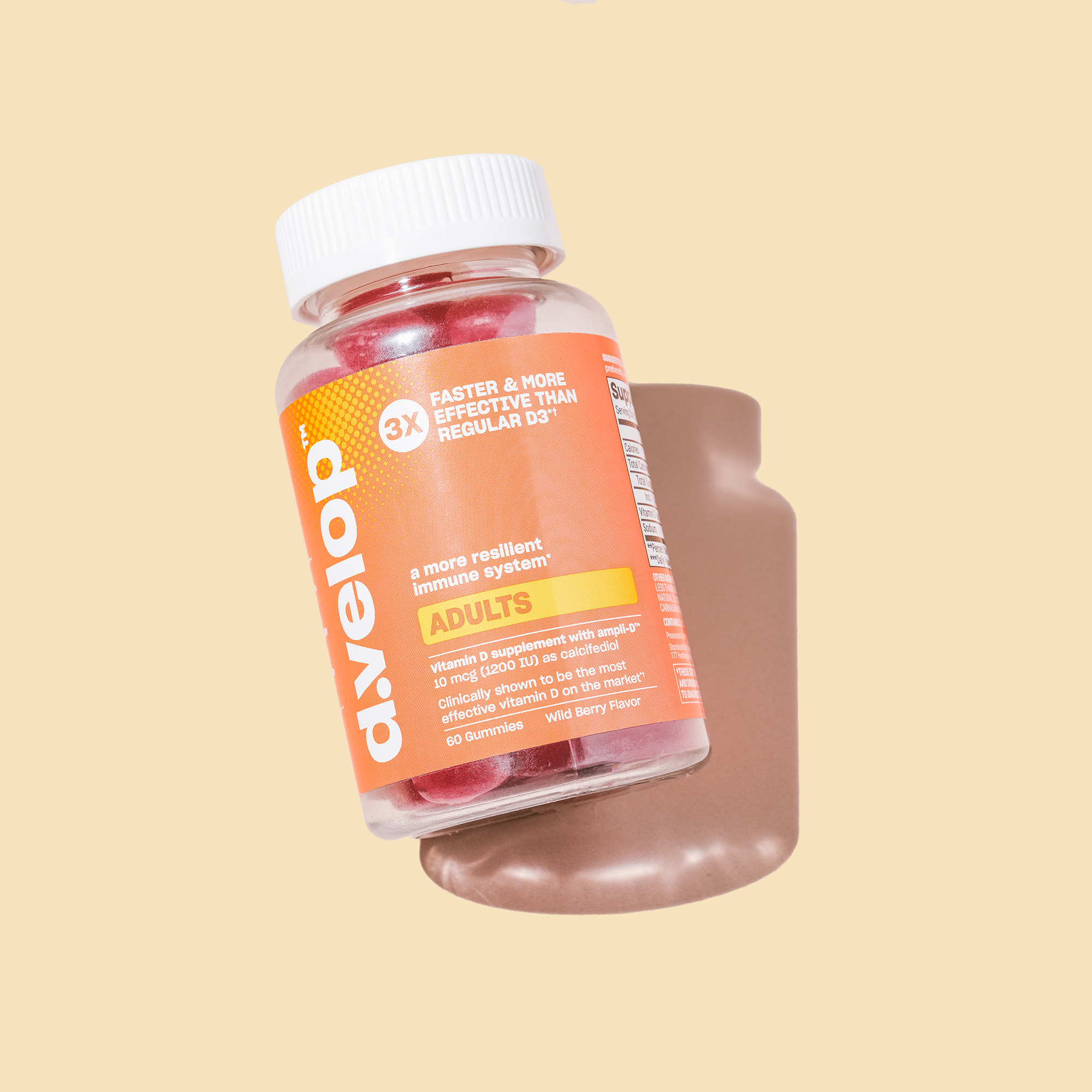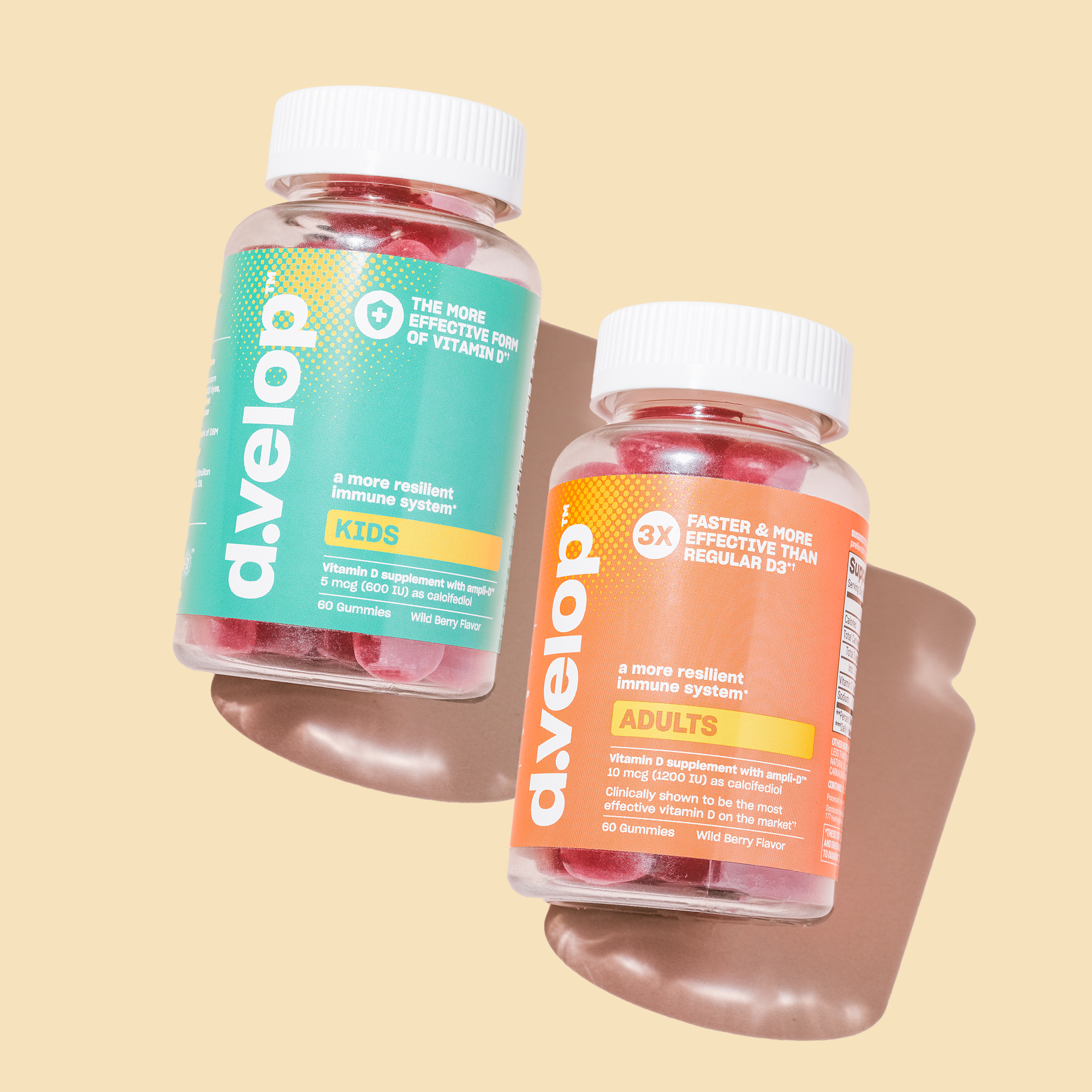Can vitamin D influence mood?
Vitamin D has been shown to support immune health, cardiovascular diseases well as healthy bone growth. In addition to these benefits, there is emerging research exploring the influence vitamin D also has on sleep, depression, and mood.
Did you know that vitamin D is nicknamed the sunshine vitamin D because your body can produce it when your skin is exposed to the sun? Even while outside on gloomy days, you are still somewhat exposed to the UV rays of the sun, and your body will produce some vitamin D.
The relationship between vitamin D, mental health, and mood
The connection between vitamin D and mental health is still fairly unclear. Some research has found there are small amounts of vitamin D receptors located in the same areas of the brain that may be linked with depression. While more promising research has focused on individuals with Vitamin D insufficiency and its impact on mood, depression, and fatigue.
Vitamin D receptors (VDR) allow the body to respond to vitamin D. These receptors have been found in regions of the brain which suggests there may be conversion of the inactive form of vitamin D to the active form of vitamin D happening in the brain. The active form of vitamin D assists with serotonin and melatonin regulation. Serotonin is associated with providing a calming effect and boosting mood. Low levels of serotonin can produce the opposite effect - a gloomy mood. Melatonin also promotes calmness and relaxation, however if not regulated, melatonin can contribute to feelings of depression. According to studies, the negative effects of unregulated serotonin and melatonin can be combatted by increasing vitamin D.
Optimize vitamin D to improve mood
Suboptimal levels of vitamin D have been associated with higher incidences of various mood disorders. Maintaining adequate levels of vitamin D can lead to overall improvement of mood and cognitive status. Getting some sunlight, eating a vitamin D-rich diet and supplementation may also help with attaining optimal vitamin D levels.
There are several ways to increase your vitamin D intake. You can get vitamin D through your diet, with supplements and by spending time in the sun. Examples of vitamin D-rich foods include eggs, fortified milk, and fatty fish such as salmon and tuna. Getting about 10-30 minutes of direct sunlight can help to increase vitamin D levels if you aren’t wearing sunscreen. This can be hard to do in the winter or if you are prone to sunburn. (Note: We recommend you practice safe sun, by wearing sunscreen while outside.)
Taking a vitamin D supplement can also help you optimize vitamin D levels. Research has demonstrated supplementation of 4000 IU of vitamin D for at least 8 weeks may lead to overall improved mood.
If you are concerned about your mental health, we recommend you seek long-term support from your doctor right away.
Author:
Erin McNamara, RDN, LDN, CLT
References
- Huiberts LM, Smolders KCHJ. Effects of vitamin D on mood and sleep in the healthy population: Interpretations from the serotonergic pathway. Sleep Medicine Reviews. 2021;55:101379. doi:10.1016/j.smrv.2020.101379
- Penckofer S, Kouba J, Byrn M, Estwing Ferrans C. Vitamin D and Depression: Where is all the Sunshine? Issues in Mental Health Nursing. 2010;31(6):385-393. doi:10.3109/01612840903437657
- De Berardis D, Orsolini L, Serroni N, et al. The role of melatonin in mood disorders. ChronoPhysiology and Therapy. Published online November 2015:65. doi:10.2147/cpt.s41761
- Shah J, Gurbani S. Association of Vitamin D Deficiency and Mood Disorders: A Systematic Review. IntechOpen; 2019. Accessed February 18, 2022. https://www.intechopen.com/chapters/70606
- WL; CYCHYCH. The effect of vitamin D supplement on negative emotions: A systematic review and meta-analysis. Depression and anxiety. https://pubmed.ncbi.nlm.nih.gov/32365423/. Accessed March 25, 2022.























































